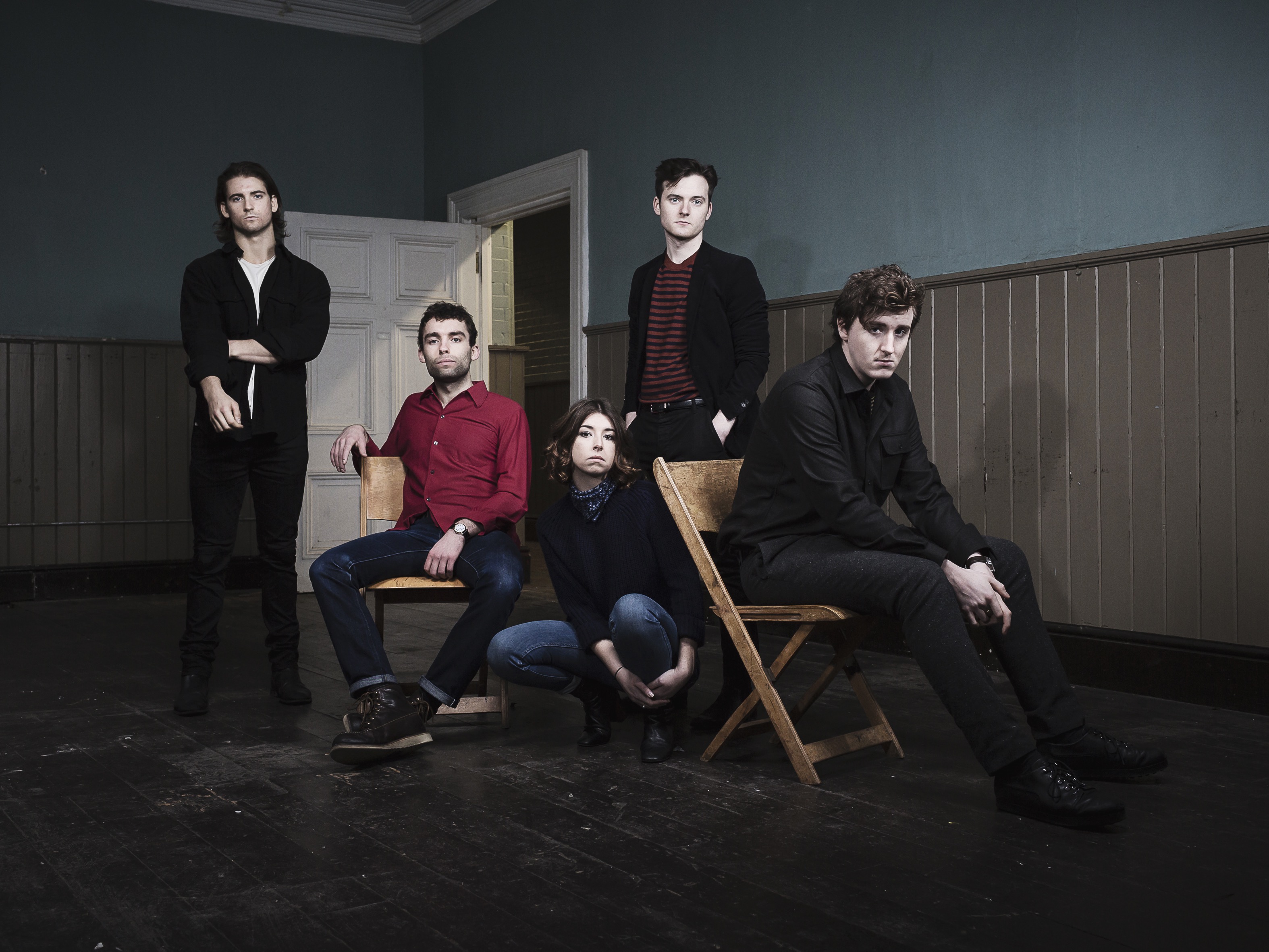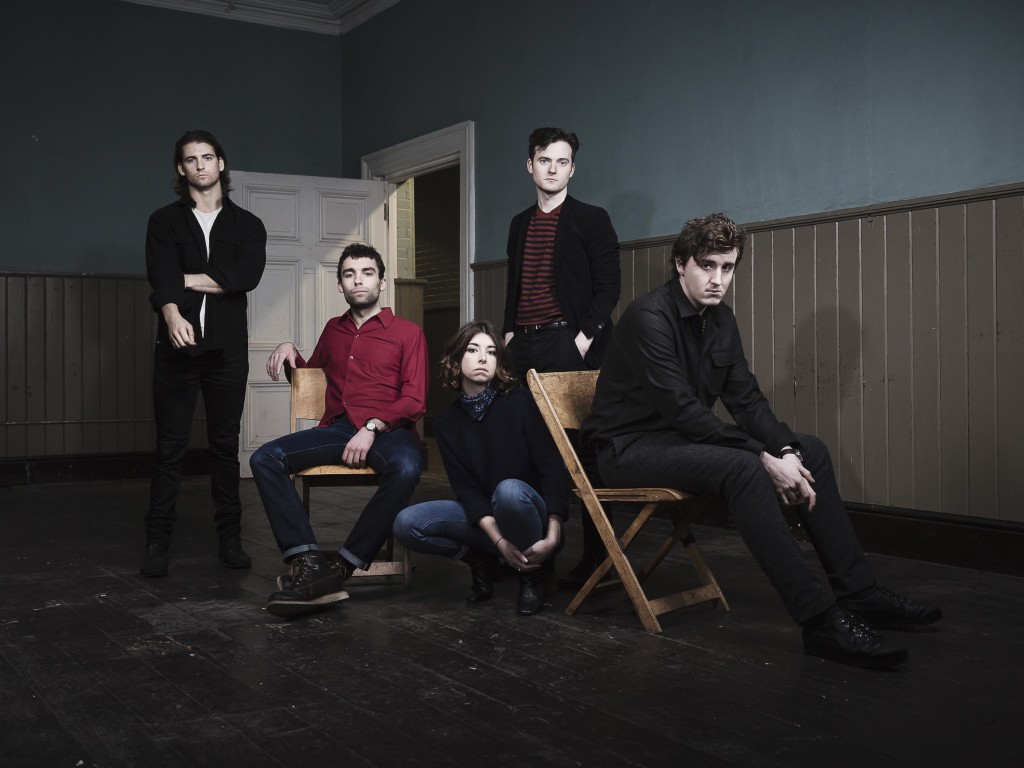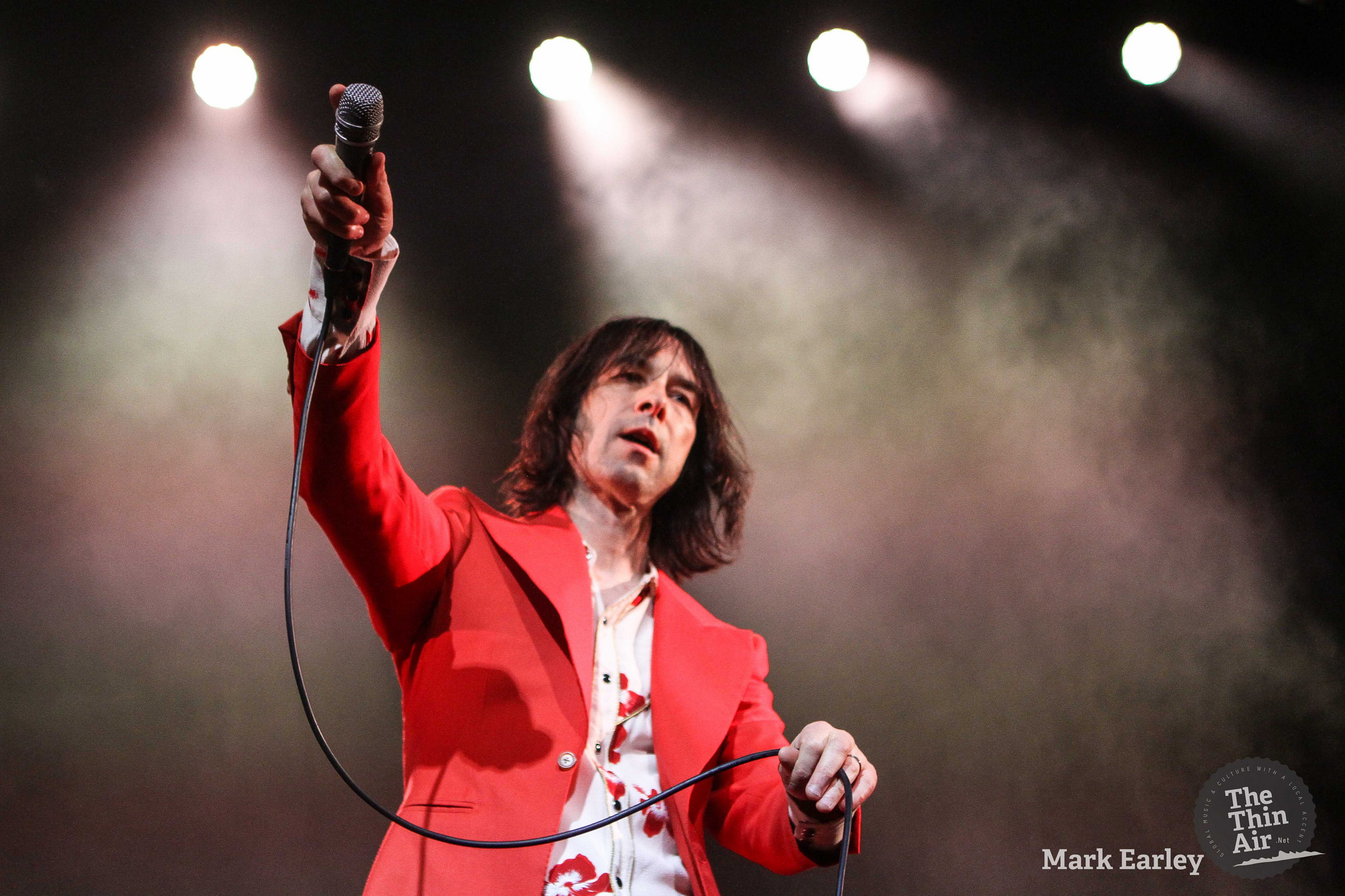Ahead of a string of December dates kicking off at Belfast’s The MAC on Thursday, Brian Coney chats to Dublin’s Little Green Cars about communication, mortality and their craft.
Go here for the band’s full tour schedule.
Hi guys. 2016 has of course been a great band for you as a band. What have you found to be the most rewarding part of your rise over the last while?
We went through a lot together during the writing of Ephemera. It was truly a labour of love, but an emotional labour nonetheless. Touring the album has been very cathartic. It has given the music new meaning for us. Having the opportunity to speak to people after the shows and getting to hear what the songs mean to them is what makes it all worthwhile.
You’ve said that in the two years that followed the release of Absolute Zero in 2013, you all learned to communicate with one another better. How do you feel that strengthened your musical, songwriting relationship?
It turned us into a real unit. We really trust one another and that makes for a very safe and comfortable creative atmosphere. Every idea is explored, no matter how off-the-wall it may be. We have a lot of fun bringing an idea from concept to fruition.
Especially with more recent material, I get the impression you spend quite a while working on composition and harmonies. Is that the case or is a much more effortless process?
It’s certainly not effortless. We spend a lot of time trying to find the correct way to present a song. The words are always our guiding light when composing the music. We use harmonies as a device to drive home a lyric.
Ephemera is an emotionally potent, filler-free musical feat. How did the songwriting and recording process vary to Absolute Zero?
The songwriting process didn’t change insofar as it’s always different. In other words, there’s no formula to how we write. Every new song is a new adventure and like so many songwriters have said before, once you’ve written it you soon forget how it was done. The recording process, however, was very new and exciting for us. We decided we wanted to co-produce Ephemera and the experience was exhilarating. We recorded it over the course of a few months, in a small studio in the heart of Dublin City. It was playful and experimental and very liberating.
With the title taken from a WB Yeats poem, transience and mortality are recurring themes on the album, but is there one main overarching message that you tried to convey throughout?
It’s an album about life and death, but not about finality. It’s about embracing that cycle of change. Ephemera means the passing of time, the fading of light and the beauty of a moment. The songs we’ve written for this record try to confront some big truths head on. Sometimes the truth is frightening, sometimes it disappoints you, and sometimes it only inspires more questions. But it is only by confronting it that you can begin to decipher its meaning and grow.
The album is a blend of genres – which is a real strong point here. Which artists or sounds – if any – made an imprint on your songwriting for this record?
Because there are five of us in the band, there is a wide spectrum of influences. Each member contributes in their own way with an entirely different musical background. To name a few major influences – Fleetwood Mac, Elliott Smith, Bruce Springsteen, Joni Mitchell, The Smiths, Television. As a band we’re all listening to someone called Alex G who has brought out a new album called Beach Music this year which is blowing us all away. But the influences range from Classical, Jazz and Hip-Hop and everything in-between. I feel it’s important to stay open-minded about music in a band. You never know where the inspiration will come from next.
You’ve said that film is a big influence on your sound when touring, which has directing music videos. Do you have any favourites released this year?
Film is indeed a big influence on us. We’ve recently discovered the wonderful animated world of Studio Ghibli. Our favourites so far are Porco Rosso and Whisper Of The Heart. This year we loved the Irish documentary Mattress Men by Colm Quinn.
There is an undoubted catharsis in listening to mournful music, hence why so many people prefer it over “happy” music. But you seem to balance solace and sorrow like few others. Do you think that’s important, musically speaking?
I think that all great art recognises that the truth is complex. It’s not black and white. Tragedy can be comical. Comedy can be tragic. There’s darkness in the light and vice versa, and we all experience that equilibrium every day. Our objective as songwriters is to just be honest.
For a band whose craft strikes a bow directly at truth, your live shows can often feel like almost sacred experiences. Do you feel that your music belongs in arenas, more than on record – or just as much?
They’re equally as important. We consider ourselves a live band first and foremost, but we love making records. We’re a band that still very much believes in the album as a medium, and for us that will never change.
You covered a huge amount of ground in 2016. What is the plan for 2017 and is there new material in the works?
We’ve spent the past 3/4 months living and writing new music together in a house on Tara Hill in Gorey. The house has an incredible panoramic view of the Irish sea. On a nice day, it feels like you’re on another planet and that feeling of disconnect has been really inspiring. We can’t wait to get back into the studio, which hopefully should be sometime early-mid 2017.







